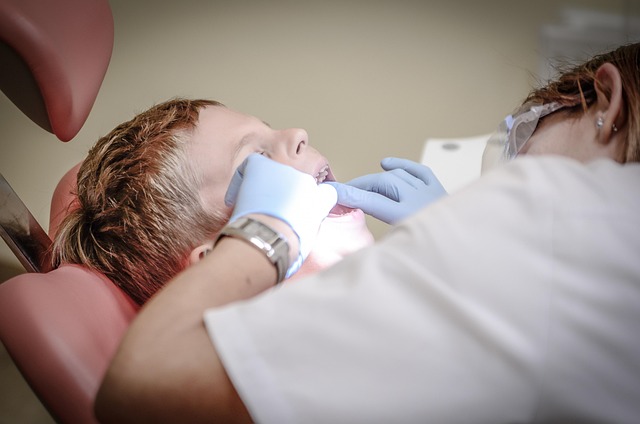Dental Implant Costs in Canada for 2026
Dental implants are a common tooth replacement option in Canada, offering a durable solution for missing teeth. In 2026, costs vary depending on multiple factors including implant type, location, and complexity. Understanding these influences can assist Canadians in planning for dental implant treatments effectively.

Overview of Dental Implants
Dental implants are artificial tooth roots typically made from titanium or zirconium, surgically inserted into the jawbone to support crowns, bridges, or dentures. They offer a long-term solution for tooth loss by providing stability and function similar to natural teeth. The process may involve multiple stages, such as initial consultation, implant placement, healing time, and fitting of the prosthetic.
Types of Dental Implants
### Single Tooth Implants These replace one missing tooth using a titanium or zirconium post inserted into the jaw, topped with a crown. This option is often selected when only one tooth requires replacement.
Multiple Tooth Implants
Implants can also support bridges replacing several adjacent missing teeth. The number of implants depends on the extent of tooth loss and bone quality.
Full Arch Implants
For complete upper or lower dental arches, 4 to 8 implants may be placed to support fixed bridges or overdentures. This approach generally improves chewing ability and facial structure compared to traditional dentures.
Materials Used in Dental Implants
Dental implants in Canada are typically manufactured from biocompatible materials such as titanium or zirconia. Titanium implants have a long history of use due to their strength and osseointegration properties (bonding with the bone). Zirconia implants, made of ceramic material, offer an alternative for patients preferring metal-free options. The choice of material can affect cost and suitability based on individual clinical factors.
Factors Influencing the Cost of Dental Implants in Canada
Several elements contribute to the overall cost of dental implant procedures, including: - Location of treatment: Costs vary between provinces and urban vs. rural clinics. - Number of implants required - Type of implant and materials used - Additional procedures such as bone grafts or sinus lifts, if needed to support the implant - Complexity of the case (e.g., bone quality and oral health) - Professional fees for the dental surgeon, restorative dentist, and any specialists involved - Diagnostic imaging like 3D scans - Laboratory costs for manufacturing crowns or prosthetics
Typical Costs in Canada (2026)
When considering dental implants in Canada, typical price ranges include: - Basic option: Around CAD $2,500 to $4,000 per single implant, suitable for straightforward cases without additional procedures. - Standard option: Approximately CAD $4,000 to $6,500 per implant, including implant placement and crown, possibly with minor supplementary treatments. - Premium option: Typically CAD $6,500 to $15,000 or more per implant for complex cases involving multiple implants, bone grafting, sinus lifts, and advanced prosthetics.
Full arch replacement costs can range from approximately CAD $15,000 to $50,000 per arch depending on implant number and type of prosthesis.
Regional Cost Variations in Canada
Pricing for dental implants can differ across provinces and cities due to variations in living costs, clinic overhead, and access to specialists. For example, implants in larger metropolitan areas like Toronto, Vancouver, or Montreal may have higher fees compared to smaller communities. Canadians seeking dental implants are encouraged to consult with local dental professionals to obtain process-specific estimates.
Dental Implant Procedure Overview
The typical procedure for dental implants includes: 1. Initial assessment: Clinical examination, imaging, and treatment planning. 2. Surgical placement: The implant post is inserted into the jawbone. 3. Healing period: Osseointegration takes several months, during which the implant fuses with the bone. 4. Abutment attachment: Connector piece is attached to the implant. 5. Prosthetic placement: Final restoration such as a crown, bridge, or denture is secured.
Post-operative care and regular dental visits are important to maintain implant health and function.
Longevity and Maintenance
With adequate oral hygiene and routine dental care, implants can last 15–25 years or longer. Crowns and prosthetics may require replacement due to wear over time. Lifestyle factors such as smoking and general health also influence implant success.
Considerations for Seniors
Older adults in Canada seeking dental implants should consider bone density, overall health, and existing medical conditions. While aging alone is not a contraindication, additional assessments or treatment modifications might be necessary.
Dental Insurance and Public Coverage
Dental implants are generally considered elective and are not covered by provincial health plans such as OHIP or RAMQ. Some private dental insurance plans may provide partial coverage for implants or related procedures. Canadians should review their insurance policies to understand coverage limits and out-of-pocket costs.
Caution Regarding Low-Cost Offers
Reports of exceptionally low-priced full mouth implant offers (e.g., under CAD $1,000 per arch) should be approached with caution due to the complex nature of implant procedures. Such pricing is generally inconsistent with the materials, professional expertise, and care required. Verification of provider credentials and treatment transparency is important.
Selecting a Dental Professional
Choosing a licensed and experienced dental professional familiar with implantology is crucial for treatment outcomes. In Canada, dentists often undergo additional training and certification related to implant procedures. Patients are advised to seek providers registered with provincial dental regulatory bodies.
Summary
Dental implant costs in Canada in 2026 vary significantly based on clinical and regional factors. Implant treatments provide durable solutions for tooth replacement but involve multiple steps and considerations. Understanding typical costs, procedural details, and care requirements can assist Canadians in making informed oral health decisions.




